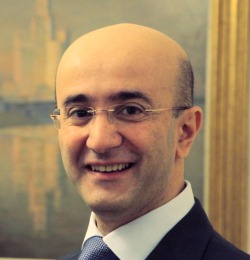You are here
Cord Blood Bank Wins Record Damages From Magazine

This legal case will please every family cord blood bank that has ever been attacked in the media: Moscow's Arbitration Court has given the largest damages award in the history of Russian media to Human Stem Cells Institute (HSCI) for a dispute over how family cord blood banking was portrayed in a magazine. The damages amount in rubles is equivalent to nearly USD 1 million.
The case began with an article titled "Money Made on Children's Blood" that was published in the magazine "Russky Reportyor" (Russian Reporter) on 24 January of 2013. The article alleged that Gemabank, the largest family cord blood bank in Russia, had disseminated false information about the healing powers of umbilical cord blood. The article also attacked Gemabank for aggressively promoting their services in maternity wards, a practice that is a standard marketing tactic of family cord blood banks worldwide.
At first HSCI, an open joint-stock company that owns Gemabank, simply asked Russky Reportyor to remove the article from its website, but their request was refused.
Russky Reportyor prides itself on controversial news coverage. The magazine was launched in 2007, and since 2010 they have had the right to publish classified information taken from the WikiLeaks website. So their refusal to remove an article about a Russian cord blood bank is not surprising.
But Russky Reporter did not bargain on the tenacity of Arthur Isaev, MD MBA, founder of HSCI. Dr. Isaev leads a network of companies that are dedicated to researching stem cell technologies and bringing them to market as pharmaceutical products, both in his home nation of Russia and internationally.
HSCI, working with the Polyakov Law Office, sued the magazine on 25 June 2013 for damages resulting from their negative press coverage. HSCI claimed they had suffered both reputational and financial losses as a result of the article, and sought damages of 75.9 million rubles (at that time worth USD 1.6 million) from CJSC Expert Media Holding, which owns Russky Reportyor.
The ruling in this case hinged on whether the family cord blood bank had made accurate claims about the diseases treated with cord blood and the odds of use for those diseases. This case illustrates the importance and value of disseminating accurate public education. Moscow's Arbitration Court issued a record ruling in favor of the plaintiff on 28 Oct. 2014.
In addition to the financial damages, the ruling also requires Expert Media Holdings to delete the original article from the web pages of Russky Reportyor and to publish the response of HSCI. A statement issued by HSCI read: "We feel that the court's decision is very important not only for Gemabank and for the development of the use of cord blood cells in medical practice, but also for journalism and business in general. Journalists will become more aware of their responsibility, and the power and the price of their words."
To this day, Expert Media Holding has not fulfilled the requirements of the court order.
In a press release, Dr. Isaev declared: "Despite winning in all courts during the case, we are ready to settle with Russian Reporter and the defendants and reach an amicable agreement, even at this stage. If this isn't possible, then we will donate all 44.4 million rubles given to us for compensation of damages and reputational harm to charities for the treatment of children with leukemia and inherited diseases. It is precisely for these patients and for creating treatments for similar diseases that Gemabank and the entire team of the Human Stem Cell Institute work."


